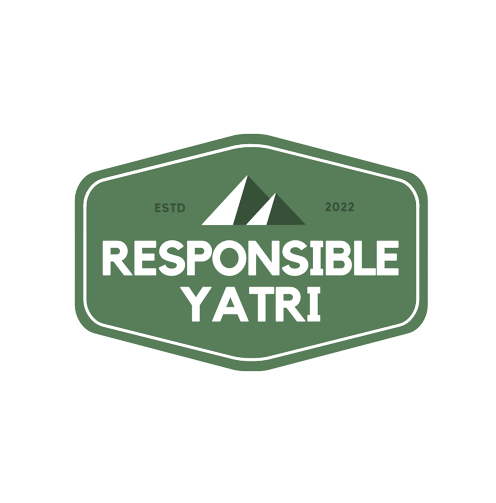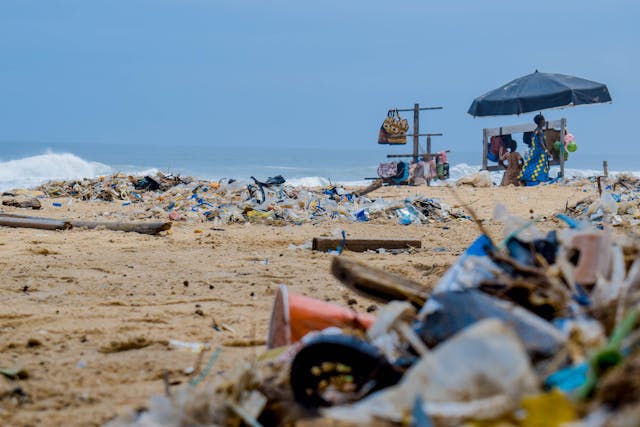Traveling is one of the greatest joys in life, but it comes with an environmental cost, mainly in the form of carbon emissions. As responsible travelers, it’s essential to be mindful of our impact on the planet and make conscious choices to minimize our carbon footprint. Here are some must-follow tips to help you travel more sustainably.
1. Choose Your Transportation Wisely
Transportation is a major contributor to carbon emissions, so it’s crucial to make eco-friendly travel choices whenever possible.
- Fly Less, Choose Trains or Buses: Whenever you can, opt for trains or buses over airplanes, as they are more energy-efficient modes of travel. Trains, in particular, emit far fewer greenhouse gases compared to flights.
- Book Non-Stop Flights: If flying is unavoidable, choose non-stop flights. Direct flights consume less fuel because takeoff and landing require the most energy. Avoiding layovers also reduces your overall carbon emissions.
- Use Public Transport, Walk, or Bike: Once at your destination, embrace public transportation, rent a bike, or explore on foot. Not only will this reduce your carbon footprint, but it also allows you to experience the local culture up close.
2. Pack Light and Smart
The weight of your luggage has a direct impact on fuel consumption, especially when flying.
- Pack Only What You Need: Lighter luggage means less fuel consumption on flights. Be strategic with your packing and bring versatile clothing that you can mix and match.
- Eco-Friendly Travel Gear: Invest in eco-friendly and sustainable travel essentials, such as a reusable water bottle, bamboo toothbrush, and solar-powered chargers. Avoid plastic-packaged toiletries by opting for solid shampoos and soaps.
3. Choose Sustainable Accommodations
Where you stay can greatly influence the sustainability of your travels.
- Stay in Eco-Friendly Lodgings: Many hotels and guesthouses are making efforts to be environmentally responsible. Look for accommodations that use renewable energy, recycle waste, conserve water, and employ sustainable practices. Certifications like Green Key, LEED, and EarthCheck can guide you to the best eco-conscious options.
- Support Local Homestays and Guesthouses: Staying in locally-owned accommodations not only supports the community but often results in a lower environmental impact compared to large international hotels.
4. Reduce Energy and Water Usage
Even while staying in eco-friendly accommodations, it’s important to conserve resources.
- Be Mindful of Your Energy Use: Turn off lights, air conditioning, and electronics when you leave your room. Keep your showers short and reuse towels to conserve water.
- Use Water Responsibly: Water scarcity is a significant issue in many regions. Be conscious of your water usage, avoid taking long showers, and use a reusable water bottle instead of relying on single-use plastic bottles.
5. Eat and Shop Locally
Food and shopping habits can also impact your carbon footprint.
- Eat Local and Seasonal: Reduce food miles by eating locally-sourced and seasonal produce. Avoid imported food items and support local farmers. Not only is it better for the planet, but it also gives you a more authentic experience of the local cuisine.
- Say No to Plastic: Always carry a reusable shopping bag, refuse plastic straws, and avoid single-use plastic wherever you go. Many destinations are moving towards banning plastic, so it’s a good habit to start.
6. Travel With a Reusable Kit
A zero-waste travel kit can save a significant amount of single-use plastic and waste.
- Reusable Water Bottle: Many airports and cities have water refill stations, so you can stay hydrated without buying bottled water.
- Reusable Utensils and Food Containers: Bring along a set of reusable utensils, a collapsible food container, and a coffee cup. This way, you can enjoy local street food or take away meals without contributing to plastic waste.
- Eco-Friendly Toiletries: Use biodegradable soap, solid shampoo, and reusable makeup wipes. These items reduce waste and are often healthier for your body and the environment.
7. Offset Your Carbon Emissions
While it’s impossible to eliminate all carbon emissions, you can offset them.
- Calculate Your Carbon Footprint: Use online carbon calculators to measure the emissions from your flights or road trips. This helps you understand the impact of your travel.
- Invest in Carbon Offsets: Many organizations allow you to offset your emissions by contributing to environmental projects, such as reforestation, renewable energy, or conservation initiatives. Make sure to choose credible and transparent programs.
8. Respect Local Wildlife and Natural Habitats
Traveling responsibly means being respectful of the environment and wildlife.
- Avoid Wildlife Exploitation: Never support attractions or activities that exploit animals, such as elephant rides or taking photos with captive wildlife. Instead, enjoy wildlife from a safe distance in their natural habitat.
- Follow ‘Leave No Trace’ Principles: Stick to marked trails, never litter, and avoid disturbing natural landscapes. Take nothing but photos and leave nothing but footprints.
9. Participate in Eco-Tourism Activities
Support eco-tourism initiatives that focus on environmental conservation and community well-being.
- Join Responsible Tours: Opt for tour companies that prioritize sustainability and give back to the local community. Many eco-tours also offer educational experiences, teaching you about conservation efforts.
- Volunteer for Conservation Projects: If time allows, join a local conservation project. This could be anything from beach cleanups to tree planting, and it’s a meaningful way to give back to the destination you’re visiting.
Traveling sustainably is about being conscious of the impact your adventures have on the planet. By implementing these tips, you can reduce your carbon footprint while still enjoying incredible experiences around the world. The key is to make mindful choices that prioritize the environment and respect the places you visit.





